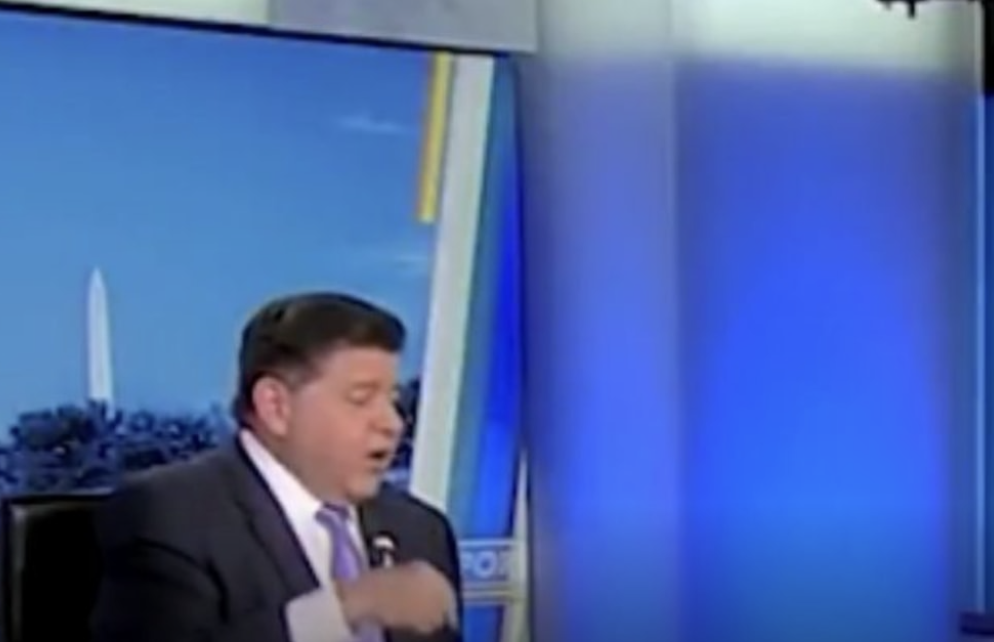Fox News anchor Bret Baier delivered a rare moment of on-air accountability Thursday night, refusing to let Illinois Gov. J.B. Pritzker escape scrutiny over Chicago’s ongoing violent crime crisis.
During a tense interview, Baier directly confronted the Democratic governor with a blunt question that few in the media dare to pose: “Why does Chicago have the highest murder rate of all the big cities?”
Pritzker, visibly composed but quick to deflect, attempted to challenge the premise. “Well, we are not in the top 30 in terms of our murder rate,” he replied confidently. He went on to add, “Our murder rate has been cut in half over the last four years, and every year it’s gone down by double digits.”
But Baier was ready. Without missing a beat, he interjected: “Here’s a map.”
The network then displayed a data-driven chart showing murder rates among the most populous U.S. cities. The numbers told a starkly different story from the governor’s claims.
“Most populous U.S. cities — 17.47 per 100,000 population,” Baier said, breaking down the statistics on screen. “Chicago is number one — ahead of Philadelphia, Houston, Dallas, San Antonio, Phoenix, Los Angeles, New York, and San Diego.”
The graphic left little room for political spin. The visual evidence contradicted Pritzker’s assertions in real time, forcing him to shift tactics mid-interview.
Attempting to reframe the discussion, Pritzker began to argue that Baier was confusing murder rates with overall violent crime statistics. But Baier immediately corrected him again.
“No, you’re talking about violent crime,” Baier interjected, refusing to allow the governor to blur the distinctions or muddy the facts.
Pritzker then attempted yet another deflection — but by that point, the data on the screen had already spoken for itself. The exchange underscored a broader truth about Chicago’s ongoing struggle with violence — and the growing unwillingness of some journalists, like Baier, to let politicians off the hook with talking points.
Baier: Why does Chicago have the highest m*rder rate of all the big cities?
Pritzker: We are not in the top 30 in terms of our m*rder rate…
*Shows map indicating Chicago has highest m*rder rate of big cities*
Pritzker: Look, you can pull statistics up….and also…but Trump pic.twitter.com/bkwVPlZX4S
— Western Lensman (@WesternLensman) October 23, 2025
When Gov. J.B. Pritzker tried to deflect with data, Bret Baier wasn’t having it.
“Look, you can pull statistics up …” the Illinois Democrat began, attempting to steer the discussion away from the grim reality of Chicago’s murder rate.
But Baier cut him off sharply. “No, no, no — these are murders,” he said, underscoring the point that could not be spun away.
The governor’s attempts at political damage control quickly fell flat. Chicago’s crime statistics speak louder than any Democratic talking point, and no amount of rhetorical gymnastics could hide the truth.
Pritzker shifted gears, taking on the role of spin doctor. “I’m explaining to you that our murder rate has been cut in half,” he insisted. “We’ve invested in community violence interruption. We’ve invested in police. I’ve added more state police than any governor in quite a long time.”
Then, almost predictably, Pritzker turned to partisan blame. “We’re doing that, and you know who’s doing the opposite? Donald Trump,” he claimed.
But even if one accepts his numbers at face value, the question remains: what exactly was cut in half?
In 2021, Chicago recorded more than 800 murders — a staggering figure by any measure. Even if that number dropped to 400 or 500, the city would still rank among the nation’s deadliest. Calling that a victory requires a troubling level of detachment from reality.
Moreover, those statistics only account for the dead — not the wounded. Every weekend, Chicago’s trauma surgeons save countless men, women, and children who narrowly escape becoming part of the city’s homicide tally. The real toll of violence extends far beyond the official body count.
For years, Chicago’s homicide crisis has stood as a national embarrassment — one that Democratic leadership has failed to resolve or even honestly confront.
What has changed, however, is the leadership in Washington. President Donald Trump has shown a willingness to take decisive action, sending federal assistance to cities like Washington, D.C., and Memphis to help curb violent crime.
In contrast, Pritzker appears more focused on defending his political image than defending the vulnerable citizens of his state’s largest city.

